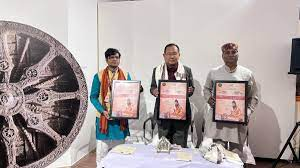
The Indian Council of Historical Research (ICHR) has rejected the proposal to include Muslim dynasties in its upcoming exhibition on Indian history. The proposal, which aimed to highlight the contributions of Muslim rulers and dynasties to Indian history and culture, was met with resistance from the ICHR, who argued that the focus of the exhibition should be limited to Hindu dynasties and Hindu cultural heritage. The decision to exclude Muslim dynasties from the exhibition has sparked criticism and controversy, with many accusing the ICHR of promoting a Hindu-centric view of Indian history. Critics argue that such a view disregards the contributions and cultural impact of Muslim rulers and dynasties on Indian history and that it perpetuates the notion that India is a Hindu-only country.
The ICHR’s stance on the inclusion of Muslim dynasties in the exhibition has also raised concerns about the larger issue of historical revisionism in India. There have been growing concerns about the attempts by some groups and individuals to rewrite Indian history to promote a Hindu-nationalist ideology and to marginalize the contributions of minority communities, including Muslims and Christians. Despite the criticism and controversy, the ICHR has defended its decision, stating that the focus of the exhibition is on Hindu cultural heritage and that it has no plans to include Muslim dynasties in the future.
The ICHR produced the exhibition named “Glory of Medieval India: Manifestation of the Unexplored – Indian Dynasties, 8th-18th Centuries” at Lalit Kala Akademi. In the presence of Dr. Rajkumar Ranjan Singh, Minister of State for Education, the Indian Council of Historical Research presented an exhibition that was launched by him.
Muslim dynasties such as Bahmani and Adil Shahi were not included in the show since no Muslim dynasty was displayed. ICHR member secretary Professor Umesh Ashok Kadam stated that Muslim dynasties are not considered Indian dynasties. Muslims, according to Kadam, arrived from the Middle East and had no direct relationship to Indian culture.
Although Islamic dynasties were clearly a part of Indian history, Kadam argued that the Mughal or Sultanate dynasties should not be allowed to dominate the past. In addition, Kadam remarked that when Islam and Christianity arrived in India during the mediaeval era, they uprooted the civilisation and destroyed the knowledge system. The exhibition, according to the ICHR, will soon be presented around the country to educate people about India’s history.


